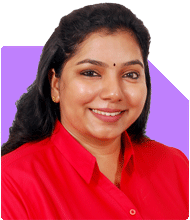Can a 16-Year-Old Invest Rs 1500/Month to Buy a Rs 1.5 Lakh Bike in 2025?
Nitin Narkhede |60 Answers |Ask -Follow
MF, PF Expert - Answered on Sep 10, 2024
As a mentor, Nitin has trained over 1,000 individuals, many of whom have seen remarkable financial transformations.
Nitin holds various certifications including the Association Of Mutual Funds in India (AMFI), the Insurance Regulatory and Development Authority and accreditations from several insurance and mutual fund aggregators.
He is a mechanical engineer from the J T Mahajan College, Jalgaon, with 34 years of experience of working with MNCs like Skoda Auto India, Volkswagen India and ThyssenKrupp Electrical Steel India.... more

I am 16 and I want to invest in mutual funds. I get pocket money of Rs 3000 per month. After cutting costs, I save about Rs 1200-1500 per month. Can I invest this in SIPs? My goal is to buy a Yamaha bike In December 2025 for my 18th birthday which costs Rs 1.5 lakh. I have already saved Rs 40,000. Where can I invest so that I can double my savings by next year? Please advice
It’s awesome that you’re thinking about investing at such a young age! Your goal of buying a Yamaha bike for your 18th birthday is achievable with the right investment strategy. Let’s break it down:
1. SIP (Systematic Investment Plan) for Your Monthly Savings you can absolutely invest your savings in SIPs. With Rs 1200-1500 available per month, SIPs are a great way to start investing in mutual funds. They allow you to invest small amounts regularly, and over time, you can benefit from compounding and rupee-cost averaging, which means your money can grow steadily. However, since your goal is just over a year away (December 2025), you’ll need to invest in something that balances growth with moderate risk, because mutual funds, especially equity ones, can be volatile in the short term.
2. How Much You Need to Save - Your target is Rs 1.5 lakh, and you’ve already saved Rs 40,000.- So, you need Rs 1.1 lakh more by December 2025. - You have roughly 15 months left, meaning you need to save or grow your savings by about Rs 7333 per month to meet your goal.
3. Investment Options - Given your short time frame, here are a few options to consider: - Hybrid or Balanced Mutual Funds: These funds invest in both stocks (equity) and bonds (debt), providing moderate growth with relatively lower risk than pure equity funds. While they might not double your savings in a year, they can give you better returns than a bank savings account. On average, you could expect returns of 8-10% per year. - Debt Mutual Funds: These are safer compared to equity mutual funds but offer lower returns, typically 6-8% per year. Debt funds might be a good option if you want to minimize risk, though they won't give huge returns in a short time. - Recurring Deposits (RDs): If you’re looking for safety and guaranteed returns, an RD in a bank might be a safer option, though the returns will be around 5-6%. This won’t help double your money, but it’s secure.
4. Doubling Your Money in a Year- While it’s tempting to look for ways to double your money quickly, it’s important to understand that high returns usually come with high risk. Investing in high-risk options like **stock trading** or **cryptocurrencies** could lead to losses, especially over such a short period.
Unfortunately, doubling your money in just over a year is not realistic without taking on significant risk. A better approach is to aim for stable growth and possibly adjust your bike budget or timeframe if necessary.
5. Action Plan - Start a SIP in a **balanced or hybrid mutual fund** with your monthly savings of Rs 1200-1500.
- Continue saving as much as possible to reach your target.
- Be cautious of high-risk investments, as they could hurt your savings in the short term.
So the Conclusion that by investing in SIPs and sticking to a disciplined savings plan, you should be able to get close to your goal. While doubling your money may not happen within a year, steady growth will help you build towards your dream bike.
If you need more personalized advice, consider speaking to a financial advisor to find the best funds for your situation.
Best regards,
Nitin Narkhede
Founder & MD, Prosperity Lifestyle Hub https://Nitinnarkhede.com
Free Webinar https://bit.ly/PLH-Webinar
You may like to see similar questions and answers below
Omkeshwar Singh | Answer |Ask -Follow
Head, Rank MF - Answered on Nov 06, 2020
Ulhas Joshi | Answer |Ask -Follow
Mutual Fund Expert - Answered on Sep 08, 2023
Moneywize |174 Answers |Ask -Follow
Financial Planner - Answered on Mar 01, 2024
Ramalingam Kalirajan |7838 Answers |Ask -Follow
Mutual Funds, Financial Planning Expert - Answered on May 09, 2024
Ravi Mittal |520 Answers |Ask -Follow
Dating, Relationships Expert - Answered on Feb 05, 2025
Ramalingam Kalirajan |7838 Answers |Ask -Follow
Mutual Funds, Financial Planning Expert - Answered on Feb 05, 2025
Pushpa R |49 Answers |Ask -Follow
Yoga, Mindfulness Expert - Answered on Feb 05, 2025
Pushpa R |49 Answers |Ask -Follow
Yoga, Mindfulness Expert - Answered on Feb 05, 2025
Dr Nagarajan Jsk |231 Answers |Ask -Follow
NEET, Medical, Pharmacy Careers - Answered on Feb 05, 2025
Milind Vadjikar |974 Answers |Ask -Follow
Insurance, Stocks, MF, PF Expert - Answered on Feb 05, 2025
Ramalingam Kalirajan |7838 Answers |Ask -Follow
Mutual Funds, Financial Planning Expert - Answered on Feb 05, 2025
Ramalingam Kalirajan |7838 Answers |Ask -Follow
Mutual Funds, Financial Planning Expert - Answered on Feb 05, 2025
Ramalingam Kalirajan |7838 Answers |Ask -Follow
Mutual Funds, Financial Planning Expert - Answered on Feb 05, 2025
Ramalingam Kalirajan |7838 Answers |Ask -Follow
Mutual Funds, Financial Planning Expert - Answered on Feb 05, 2025




























